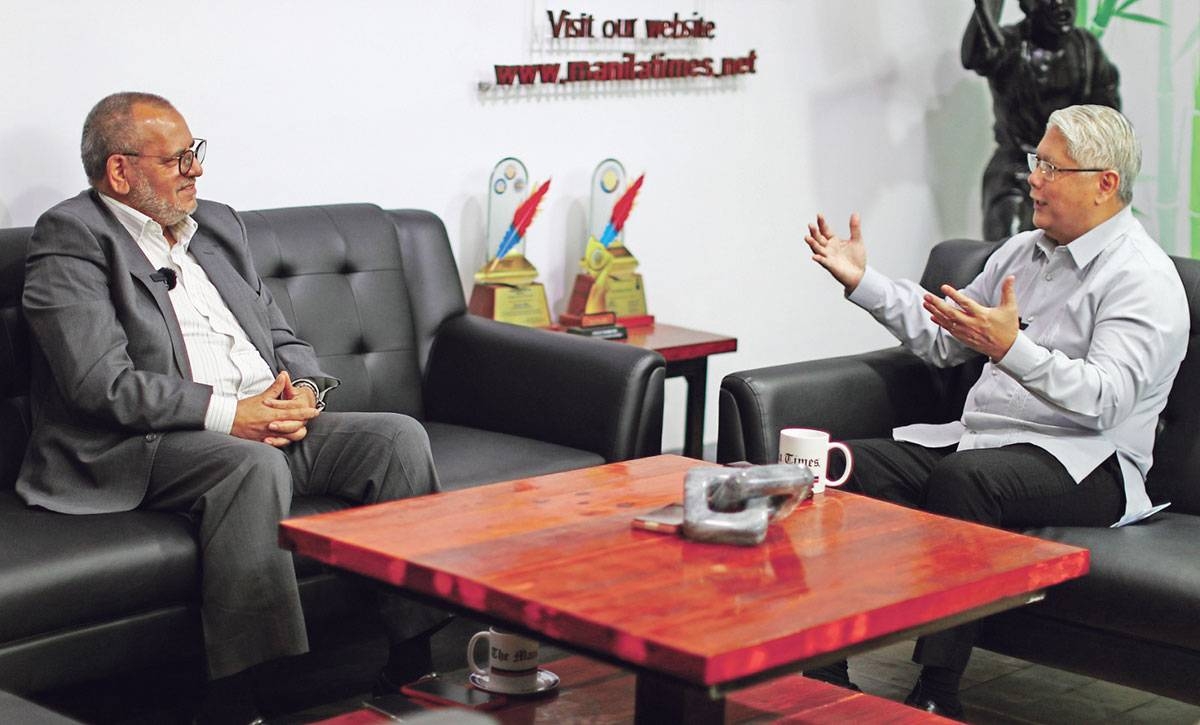THERE is room for improvement in the halal food industry in the Philippines, said South African Islamic studies scholar Sheikh Thafier Najjaar. As the head of the Islamic Council of South Africa (ICSA) religious affairs, Sheikh Najjaar’s insights shed light on the potential economic opportunities and the importance of maintaining a high standard of halal certification.
During a roundtable interview with Dante “Klink” Ang 2nd, The Manila Times chairman and chief executive officer, Sheikh Najjaar emphasized the vast economic potential of the halal industry. “From the economic point of view, we speak about approximately between $2.5 trillion and $3 trillion worth of the [halal] industry [worldwide]. So it’s big,” he stated. This highlights the significant market size and the potential for growth in the halal sector.
Sheikh Najjaar agreed with Ang that Filipinos have a tremendous opportunity to tap into the halal business ventures. “I think that is the way to the future,” he remarked. With an estimated majority of people in Europe projected to be Muslims by the year 2050, the demand for halal food will undoubtedly increase. This presents a lucrative opportunity for Filipino businessmen to cater to the growing market.
Furthermore, Sheikh Najjaar highlighted the potential job creation that the Philippine halal food industry could bring. By developing a robust halal food sector, it can stimulate the economy and create employment opportunities for Filipinos.
One key aspect that Sheikh Najjaar emphasized is the importance of maintaining a standardized halal certification process. “When you find [halal food] in South Africa, it would be the same standard in Manila. There’s only one standard. It’s either halal or not halal. There is no in-between,” he explained. This ensures that consumers can trust the authenticity and integrity of halal products, regardless of their location.
Sheikh Najjaar also highlighted the health benefits of consuming halal-certified products. “Scientifically, it is proven that certain things that are claimed to be [halal] are very good for health,” he pointed out. This further reinforces the importance of providing halal options to cater to the dietary needs and preferences of Muslim consumers.
In line with Sheikh Najjaar’s insights, Senator Robinhood Padilla has been advocating for clearer regulations on halal certification and increased awareness of the dietary principles of Muslims. The senator aims to prevent incidents stemming from the violation of Muslims’ beliefs and ensure the integrity of halal products.
Senator Padilla has raised concerns regarding the role of agencies involved in the certification of halal food products and the detection and seizure of fake halal products. He highlighted the involvement of the Department of Trade and Industry and the National Commission on Muslim Filipinos in the certification and accreditation process.
According to the International Market Analysis Research and Consulting Group, the halal industry is significant, with a value of over $2.22 trillion, or over P121.28 trillion, in 2022. This figure is expected to grow to P228.1 trillion by 2028. These statistics further emphasize the immense potential for economic growth within the halal food industry.
Overall, Sheikh Najjaar’s insights shed light on the economic opportunities and importance of maintaining a high standard of halal certification in the Philippines. By tapping into the growing halal market, Filipino businessmen can not only contribute to the economy but also cater to the dietary needs and preferences of Muslim consumers locally and globally.







